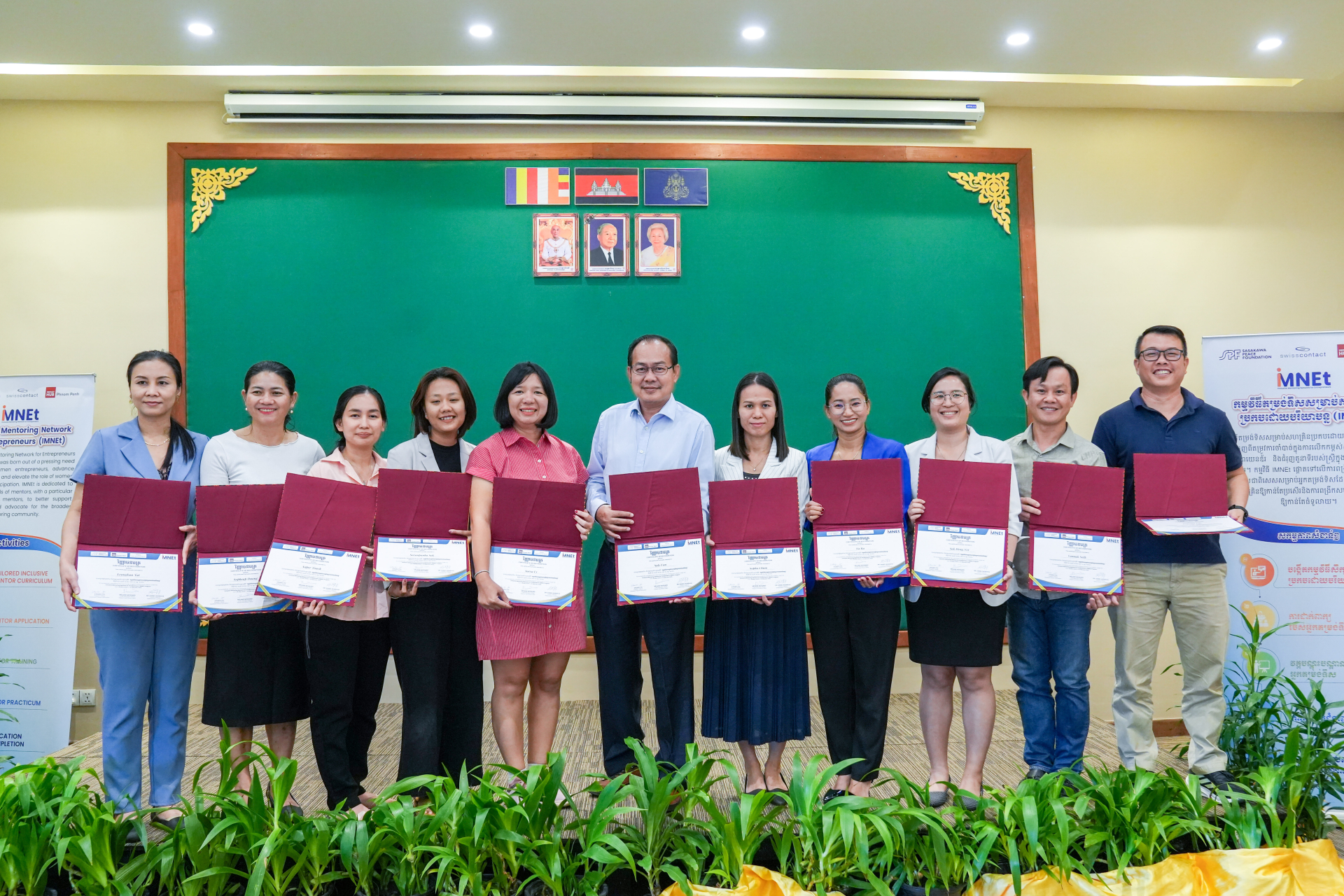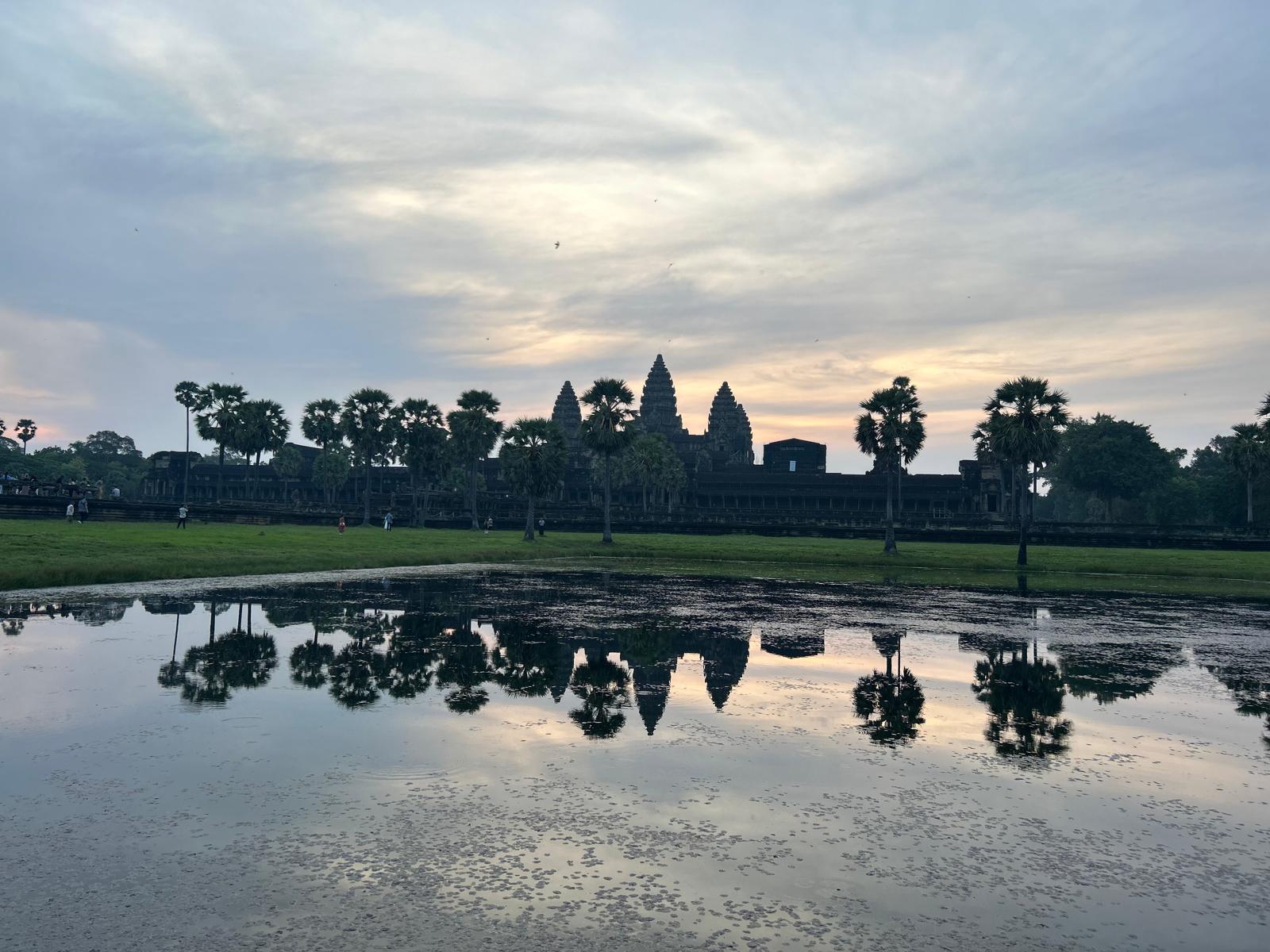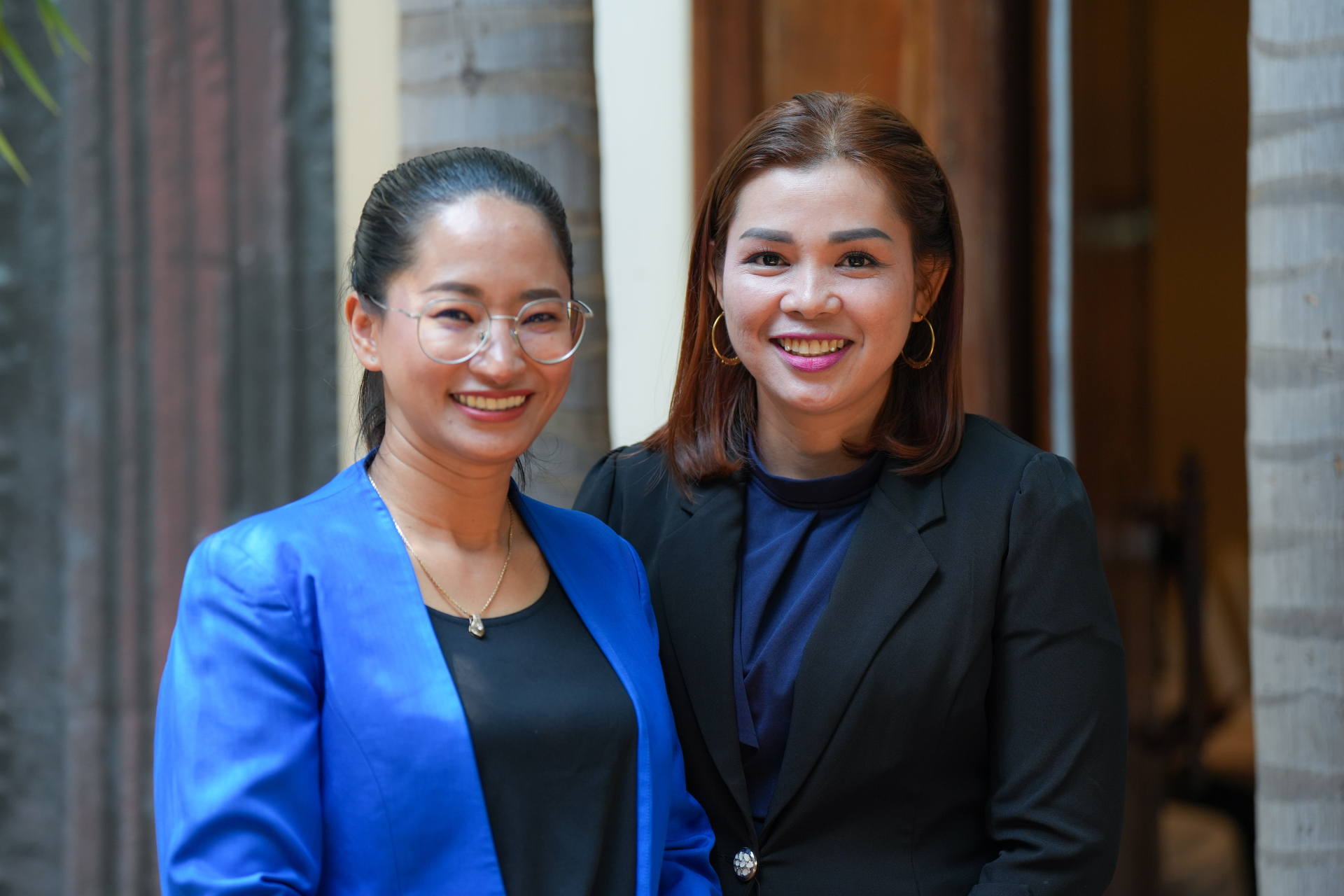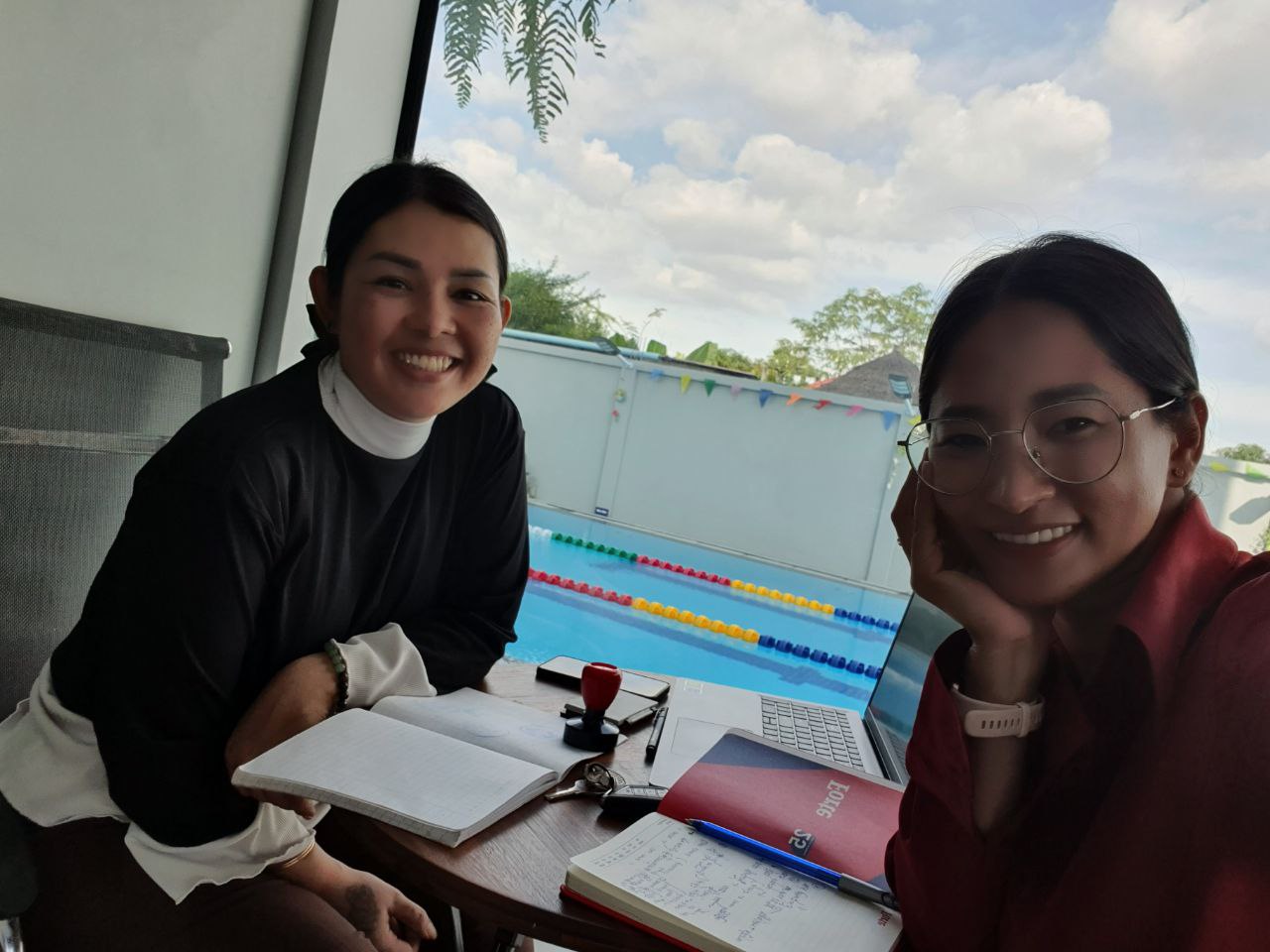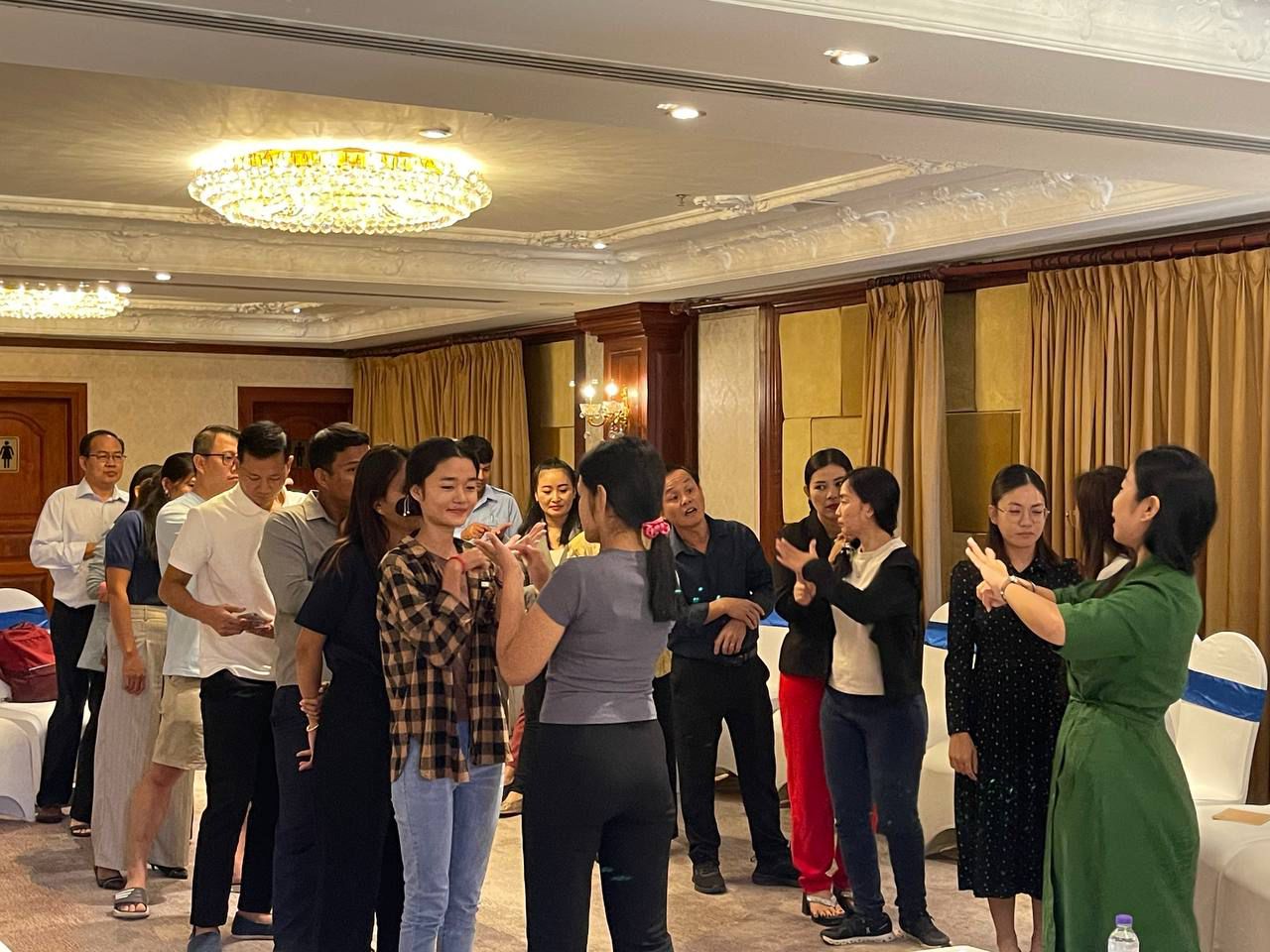In Cambodia, women-led businesses account for approximately 70% of all enterprises, making women entrepreneurs a vital force in the country’s economy and society. However, due to social and cultural factors, these women face numerous challenges in growing their businesses, including limited access to financing and markets. Moreover, the disparity in access to resources between urban and rural areas is striking. For example, while entrepreneurial support programs have become increasingly common in Cambodia in recent years, most are concentrated in the capital, Phnom Penh, making it difficult for rural entrepreneurs to participate.
The Sasakawa Peace Foundation identified these barriers faced by rural women entrepreneurs through its Gender Investment Landscape Survey in Cambodia. The research also highlighted several key issues: only about 20% of entrepreneurial support organizations incorporate a gender perspective; despite the relatively small funding needs of micro-entrepreneurs, access to finance remains limited; rural entrepreneurs, who often have greater needs for business growth support, lack sufficient access to such resources; and most micro and small enterprises are unregistered, which hinders their ability to secure funding from traditional financial institutions. The resarch also revealed that mentorship is both effective and necessary in helping women entrepreneurs overcome these unique challenges.
Based on these findings, the Sasakawa Peace Foundation launched the Inclusive Mentoring Network for Entrepreneurs (IMNEt) in 2024 - a mentor training program aimed at supporting and empowering rural micro women entrepreneurs, amplifying their positive impact of women, particularly in economic participants. The program was developed in collaboration with local stakeholders and partners. Swisscontact Cambodia, an international NGO that plays a central role in Cambodia’s entrepreneurial support ecosystem and implements the Enhancing Entreprenerial Ecosystem and Investments (3EI) program, serves as the main partner. Together with Impact Hub Phnom Penh and the Cambodia Coaching Institute, the curriculum was co-created.
To ensure the curriculum addressed local realities, focus group discussions were held with local entrepreneurs to incorporate rural-specific challenges and gender perspectives. The program is conducted entirely in Khmer. Many of the mentor candidates are entrepreneurs themselves. However, being a successful entrepreneur does not automatically make one a good mentor. Therefore, the training focused heavily on developing essential mentoring skills such as coaching techniques, active listening, and self-awareness-understanding one’s own mentoring style and motivations. The curriculum also integrates gender sensitivity to equip mentors with the awareness and tools necessary to effectively support diverse mentees and promote the empowerment of women in entrepreneurship.
As a pilot project, mentor training sessions were conducted in the provincial cities of Siem Reap and Battambang. Although the initial target was to recruit 20 mentors, the program received strong interest and successfully onboarded 25 qualified mentor candidates. As part of the training, mentors were required to apply their knowledge in real-world settings by being matched with 25 micro women entrepreneurs (mentees) in their respective cities, enabling practical, hands-on mentoring experience..
Following this process, a closing ceremony for the pilot phase was held in February 2025, aimed at promoting the value of mentorship and empowering entrepreneurial growth. The event brought together mentors, mentees, and key stakeholders to celebrate milestones, share insights, and reflect on future opportunities. During the ceremony, certificates of completion were awarded to mentors who had successfully completed the program, and a panel discussion was held to explore the importance of mentorship.
Taking advantage of this opportunity, interviews were conducted with both mentors and mentees. They shared their motivations for participating in IMNEt, the challenges faced by women entrepreneurs in rural areas, and their reflections on the significance of mentorship.
